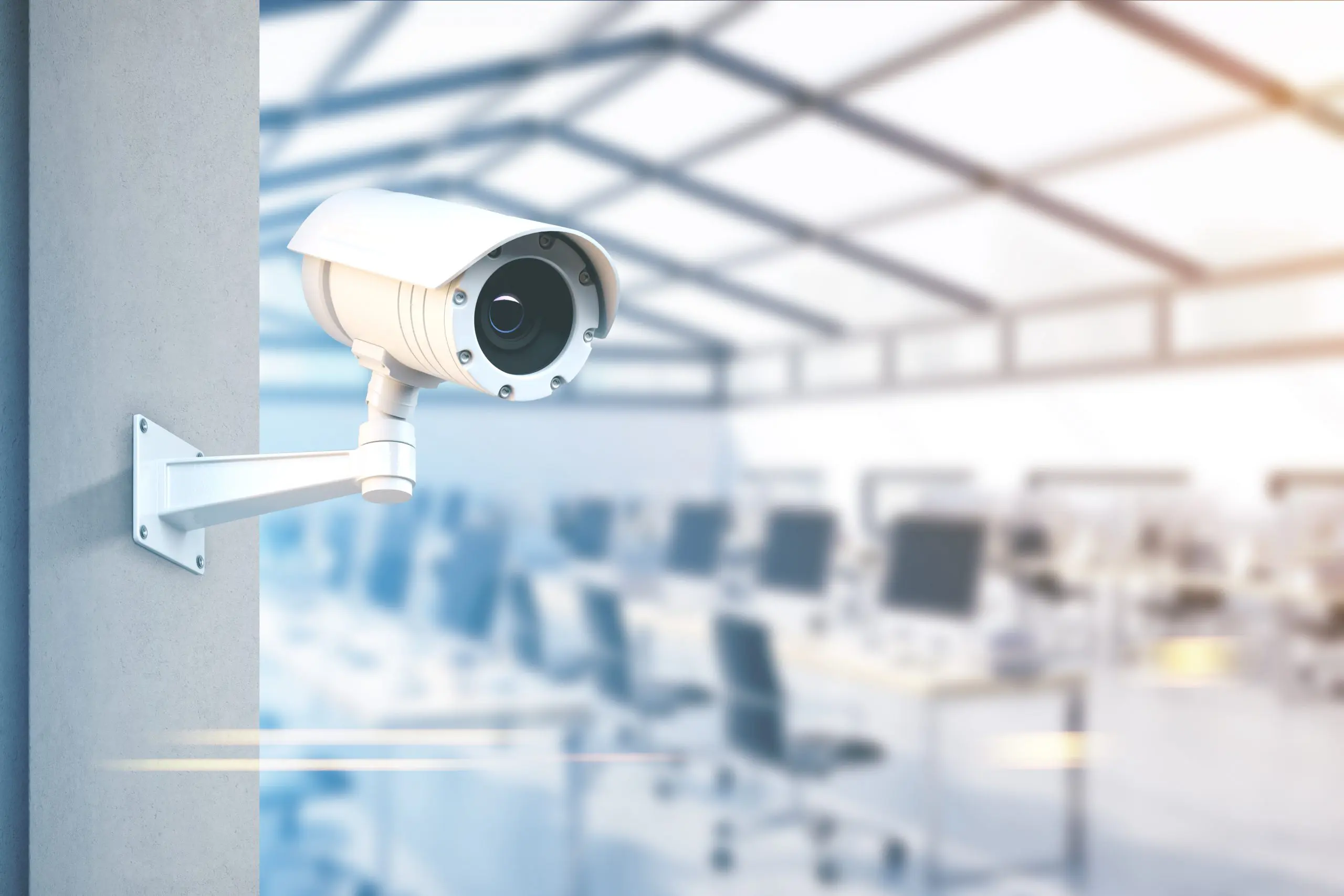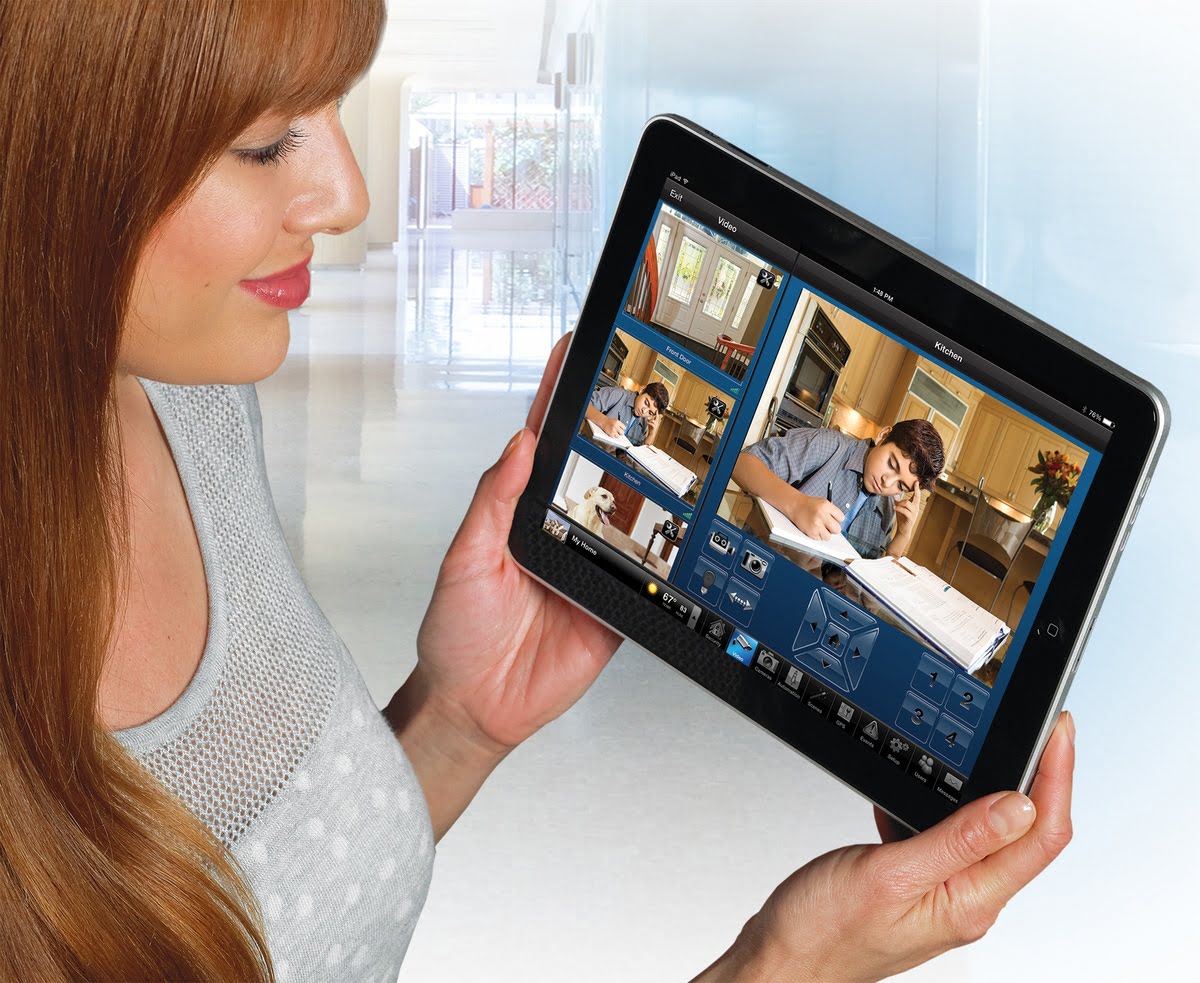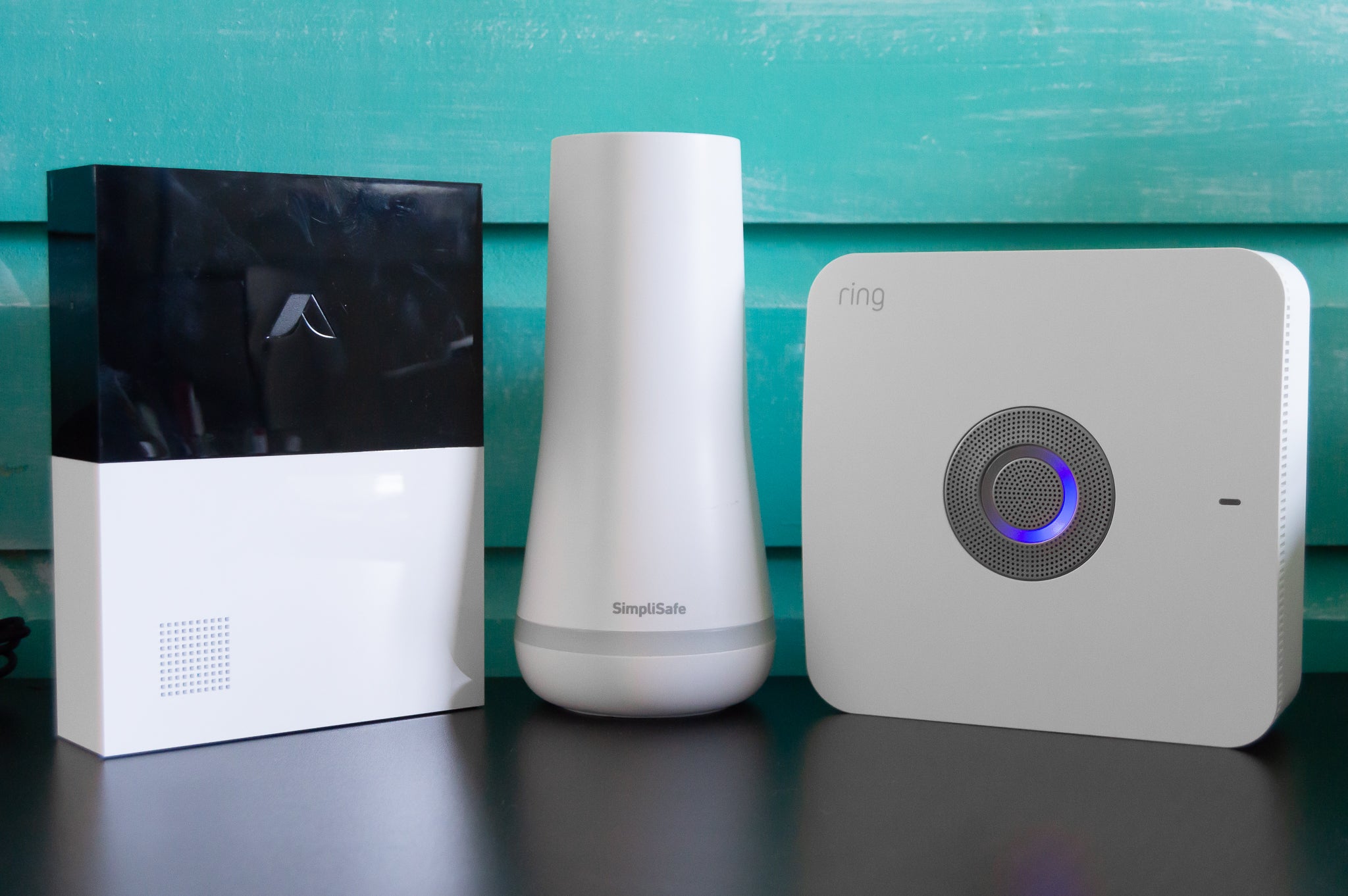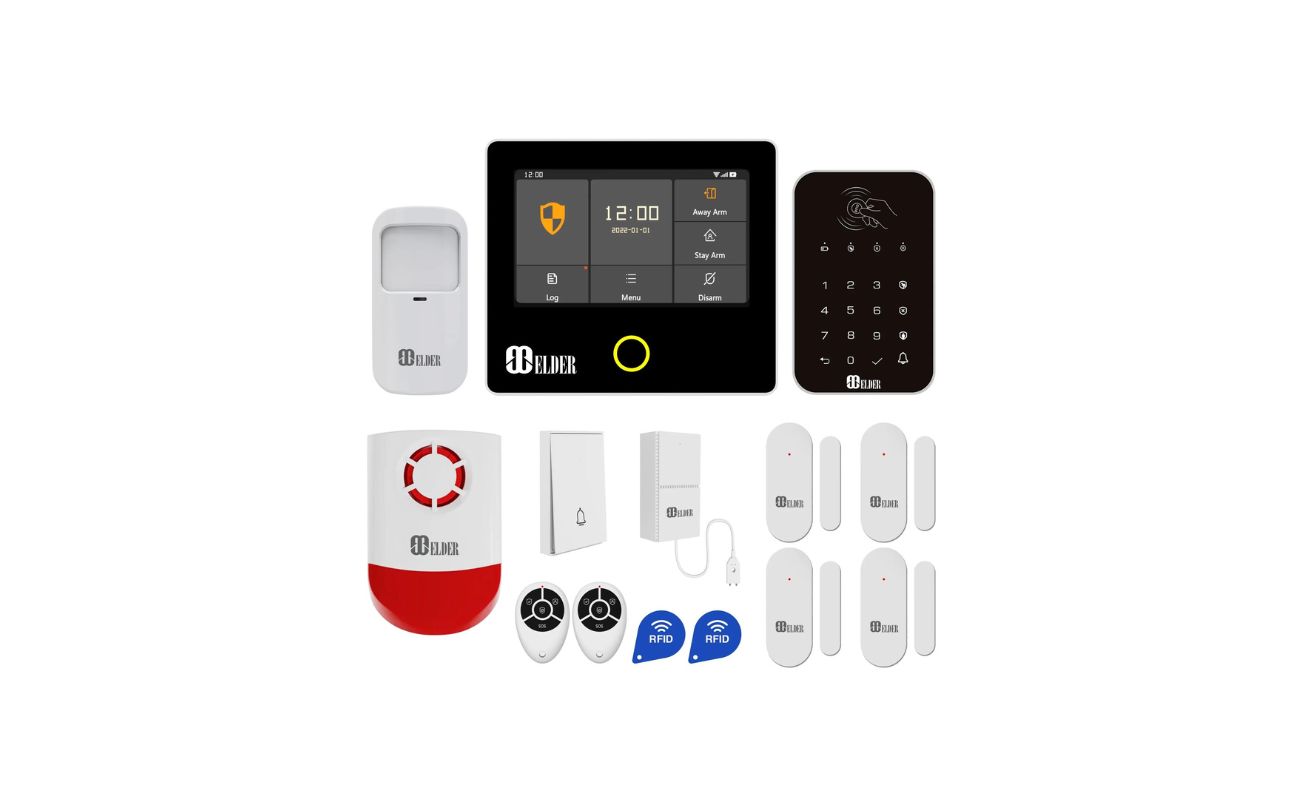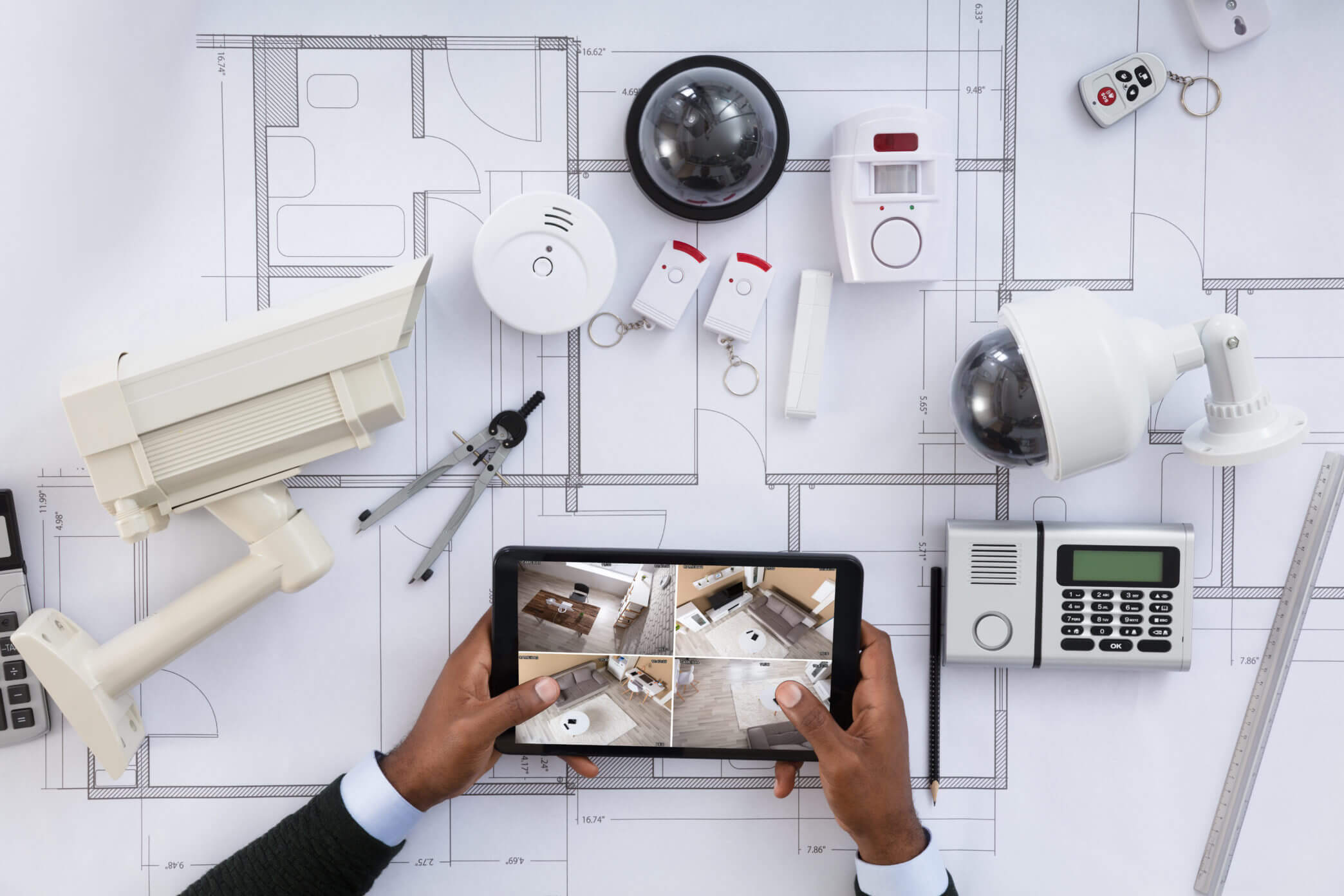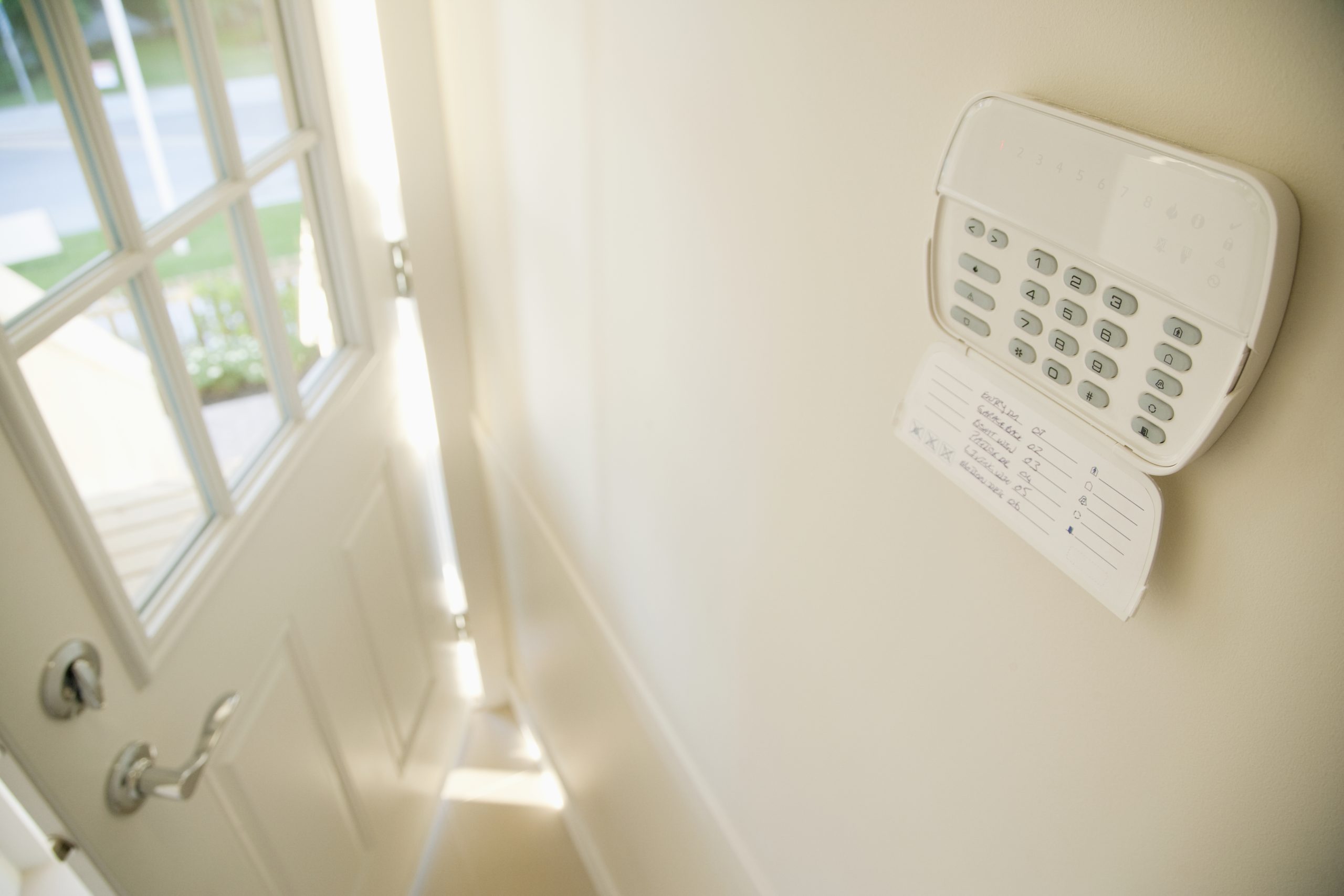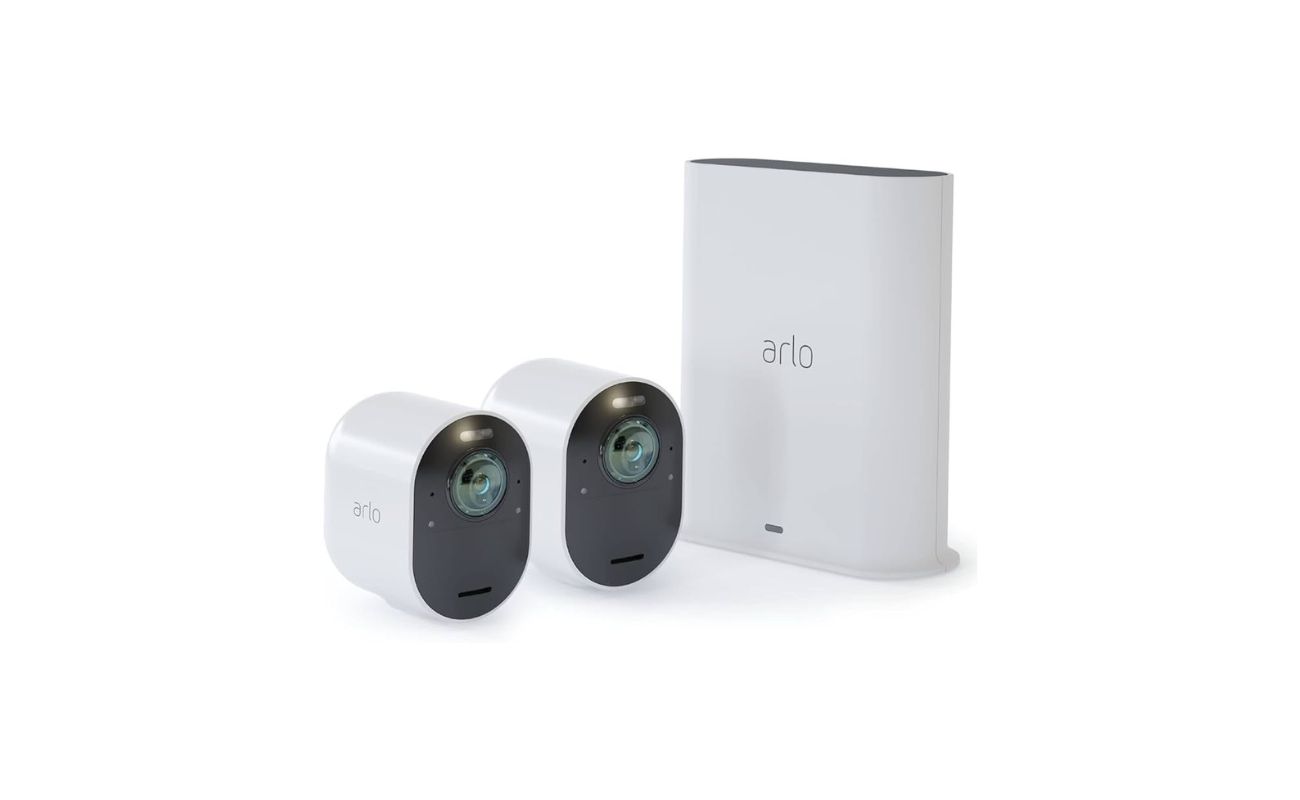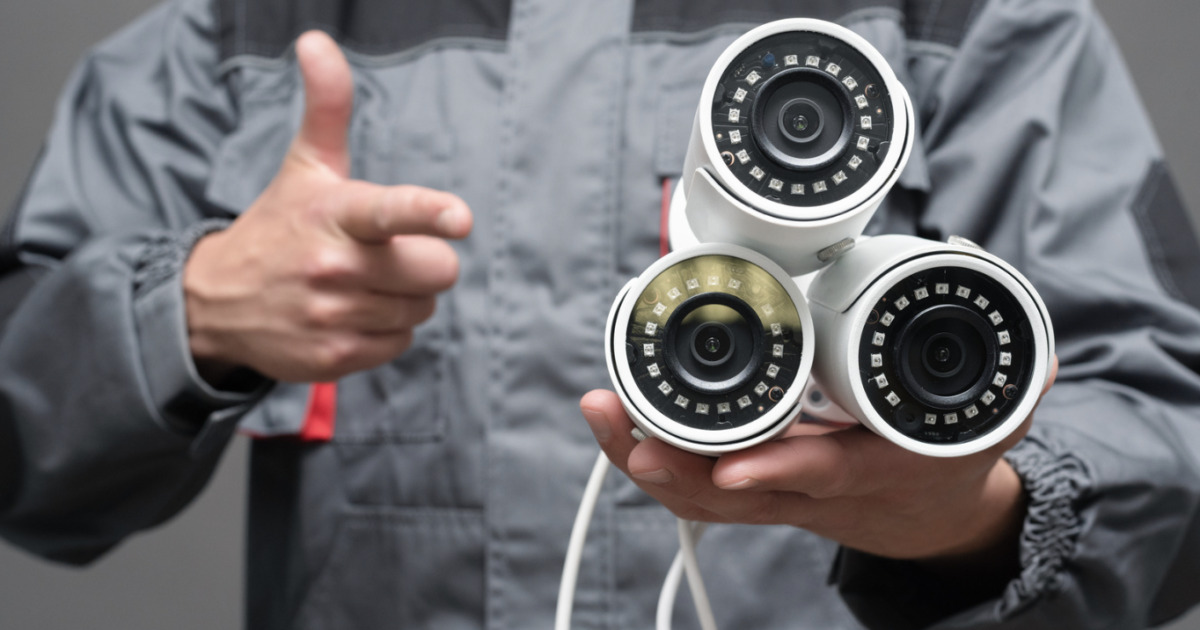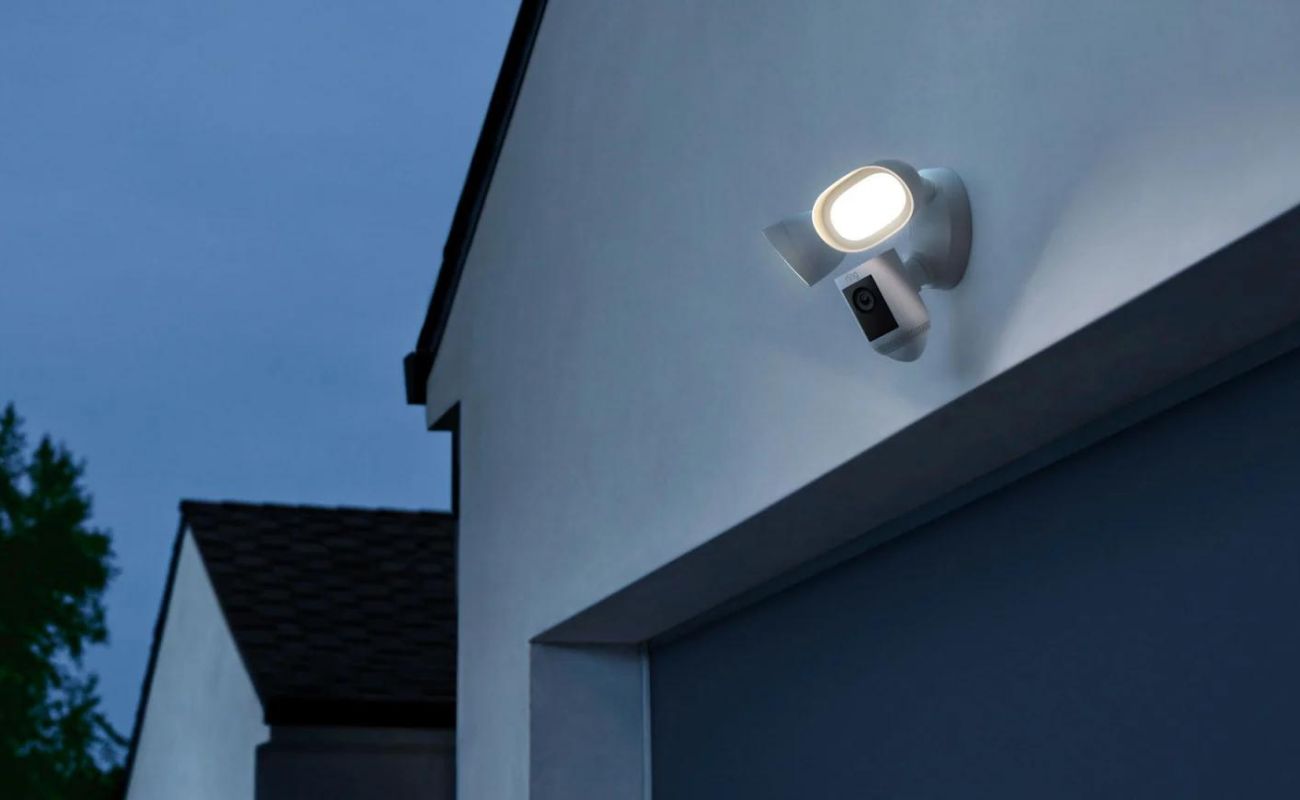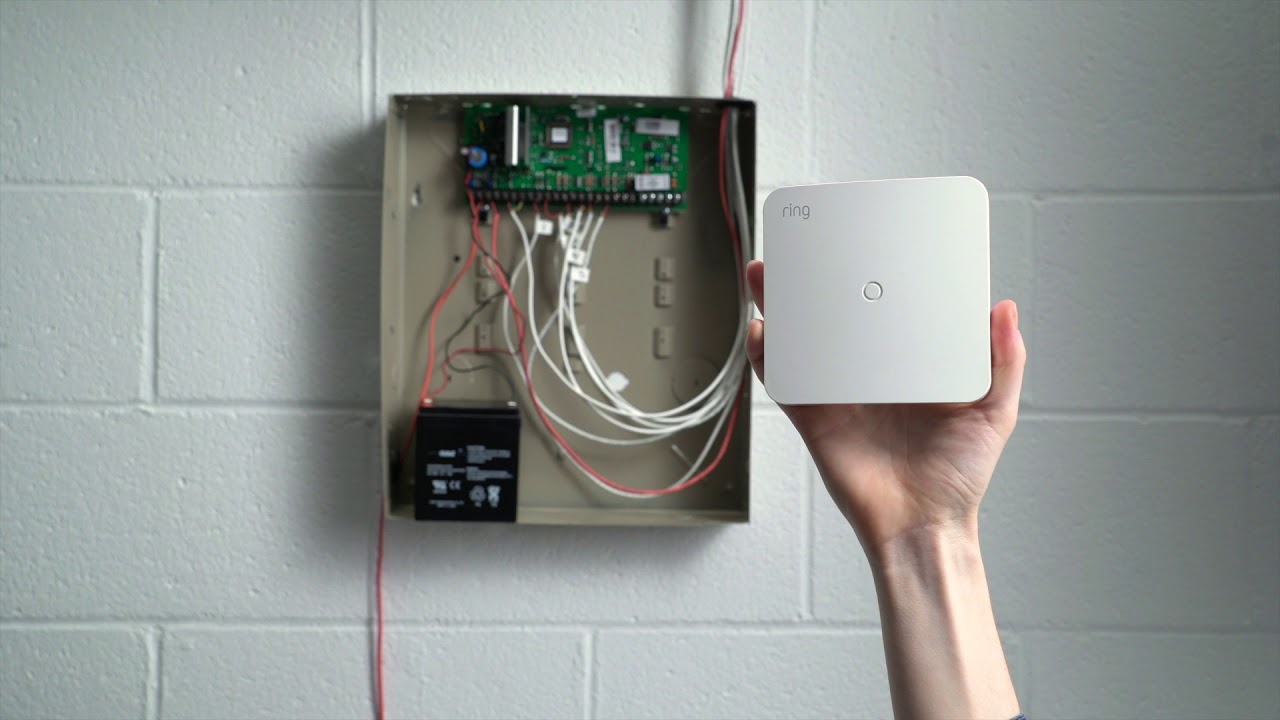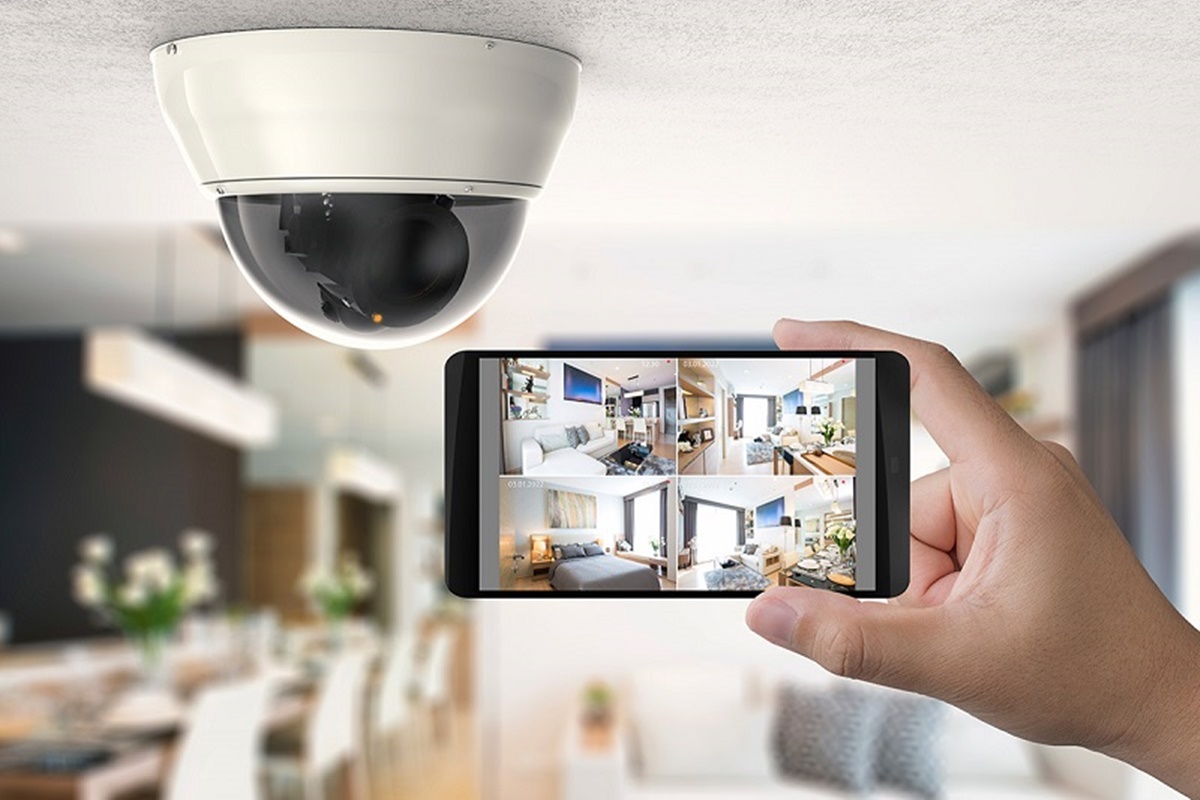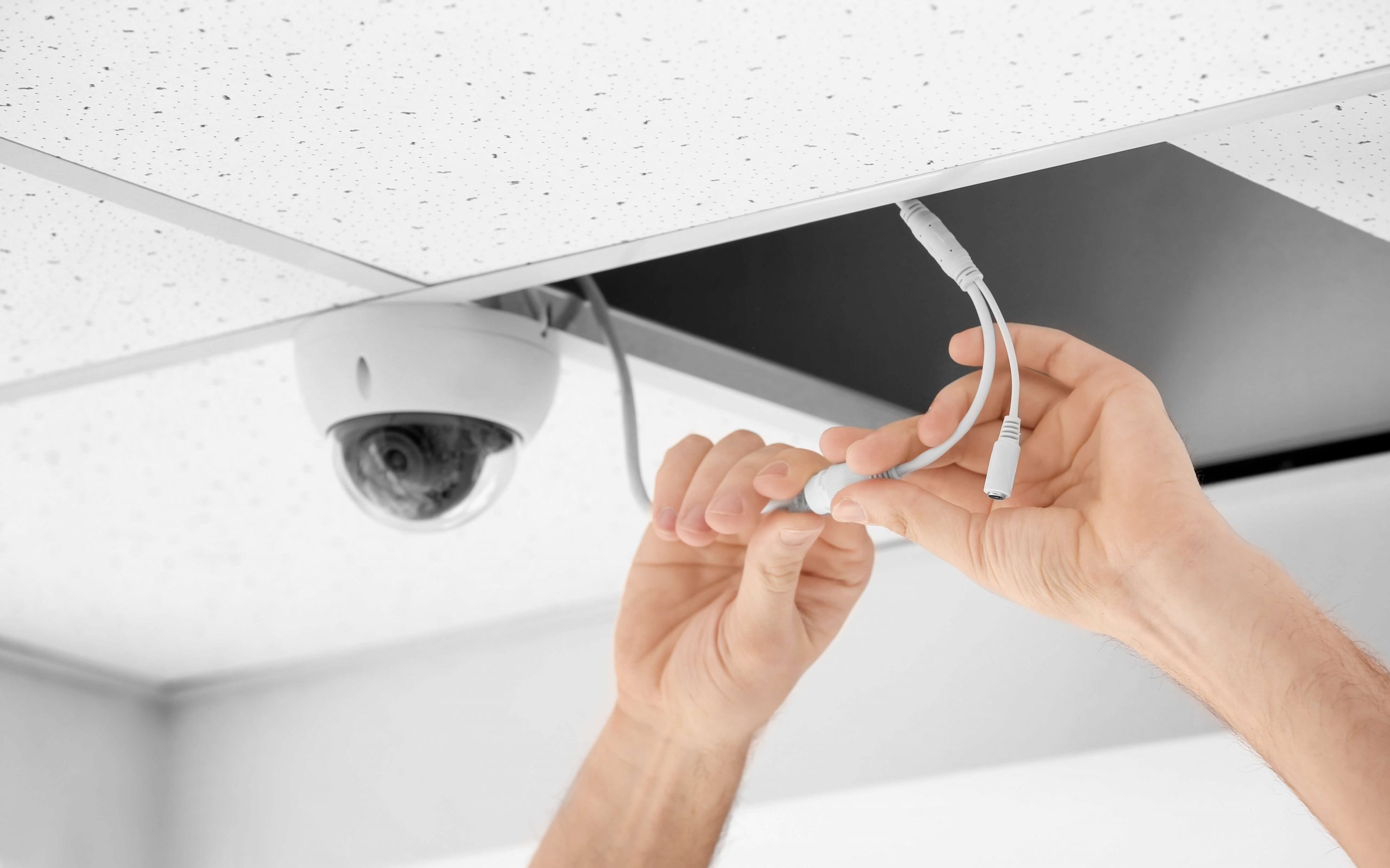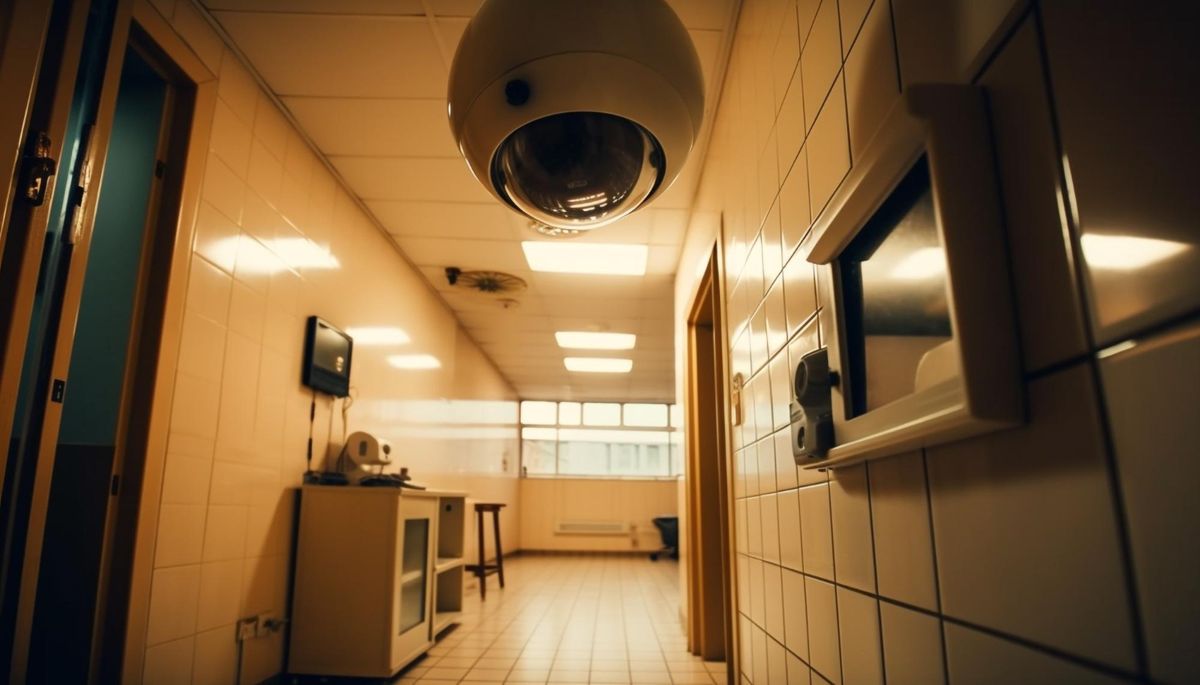Home>Home Security and Surveillance>What Are Home Security Systems
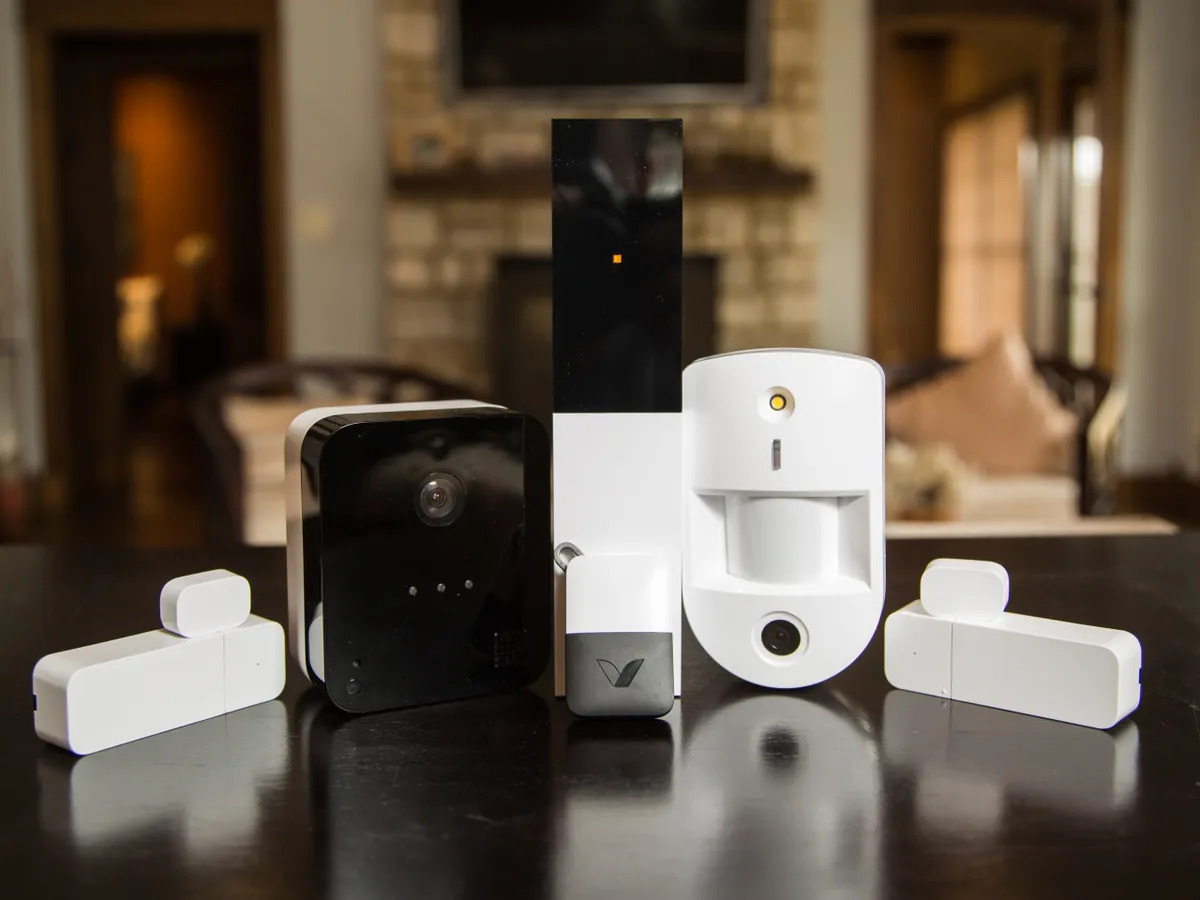

Home Security and Surveillance
What Are Home Security Systems
Modified: October 20, 2024
Discover the importance of home security and surveillance systems. Protect your home and loved ones with trusted home security solutions.
(Many of the links in this article redirect to a specific reviewed product. Your purchase of these products through affiliate links helps to generate commission for Storables.com, at no extra cost. Learn more)
Introduction
Feeling safe and secure in our homes is of utmost importance to everyone. With rising crime rates and the increasing need for protection, home security systems have become an essential part of our lives. In today’s fast-paced world, where technology is advancing at an extraordinary rate, home security systems have evolved to provide not only protection but also convenience and peace of mind.
In this article, we will delve into the world of home security systems. We will explore how they work, the different types available, and the factors to consider when choosing the right system for your home. Whether you are a homeowner looking to enhance your security measures or a renter wanting to feel more secure in your living space, this article aims to provide you with the information you need to make an informed decision.
Home security systems are designed to protect your home, belongings, and loved ones from intruders, burglars, and other potential threats. These systems typically consist of various devices, including sensors, cameras, alarms, and control panels, all working together to provide comprehensive security coverage.
One of the key features of home security systems is their ability to detect and alert you of any unauthorized entry or suspicious activity in and around your home. This early warning system gives you valuable time to take appropriate action, whether it’s alerting the authorities, activating sirens to scare away intruders, or simply providing you with peace of mind.
Furthermore, modern home security systems offer much more than just intrusion detection. They can also incorporate features such as fire and smoke detection, carbon monoxide monitoring, video surveillance, and smart home automation. These additional features not only enhance your security but also provide convenience and energy efficiency.
With the advancement of technology, home security systems have become more reliable, user-friendly, and easily accessible. Many systems now offer wireless connectivity, allowing you to monitor and control your system remotely through smartphones or other internet-enabled devices. This means you can check the status of your security system, receive instant alerts, and even view live video feeds from your security cameras, all from the palm of your hand.
In the following sections, we will explore the different types of home security systems available, their features and benefits, and the factors to consider when choosing the right system for your home. By the end of this article, you will be equipped with the knowledge needed to make an informed decision and take the necessary steps to protect your home and loved ones.
Key Takeaways:
- Home security systems have evolved to offer advanced features like remote access, video surveillance, and smart device integration, providing both security and convenience for homeowners.
- When choosing a home security system, consider factors such as security needs, budget, monitoring options, and installation methods to ensure the safety and protection of your home and loved ones.
Read more: What Is A Smart Home Security System
How Do Home Security Systems Work?
Understanding how home security systems work is crucial in order to fully utilize their benefits and make the most of their features. While the intricacies may vary depending on the specific system, there are some fundamental components and principles that apply to most home security setups.
The primary function of a home security system is to detect unauthorized entry or suspicious activity in and around your home. To achieve this, a typical home security system includes the following components:
- Control Panel: This is the central hub of the system, where you can arm or disarm the system, set up specific security modes, and receive notifications.
- Door and Window Sensors: These sensors are placed on doors and windows to detect if they are opened or breached. When triggered, they send a signal to the control panel, activating the alarm.
- Motion Detectors: Motion detectors use various technologies, such as infrared or microwave sensors, to detect movement within a designated area. When motion is detected, they send a signal to the control panel.
- Security Cameras: Cameras are an integral part of any modern home security system. They capture video footage of the surrounding areas and can be used as a visual deterrent and for evidence in case of an incident.
- Alarm Sirens: When triggered, the alarm sirens produce a loud noise, alerting you and potentially scaring off intruders.
- Monitoring Service: Some home security systems offer professional monitoring services, where a team of experts monitors your system 24/7 and can respond to alerts, contact emergency services, or notify you of any suspicious activity.
When an intrusion or suspicious activity is detected by any of the sensors or cameras, the control panel communicates with the alarm system. Depending on the settings, the control panel can either sound the alarm or send an alert to your smartphone or another designated device.
In addition to detecting intrusions, many home security systems also offer features such as fire and smoke detection, carbon monoxide monitoring, and environmental sensors to detect changes in temperature or humidity. These additional features provide comprehensive protection against a wide range of potential threats.
With advancements in technology, many home security systems now offer wireless connectivity and smart home integration. This means that you can monitor and control your system remotely using your smartphone or other internet-enabled devices. You can receive real-time alerts, view live video feeds from your security cameras, and even control other smart devices in your home, all through a user-friendly mobile app.
It’s important to note that the effectiveness of a home security system relies on proper installation, regular maintenance, and user engagement. Ensure that your sensors and cameras are properly placed and calibrated, regularly test your system, and promptly address any issues or malfunctions. Additionally, regularly updating passwords and firmware to protect against potential vulnerabilities is essential in maintaining the security of your system.
In the next section, we will explore the different types of home security systems available, each with its own advantages and considerations.
Types of Home Security Systems
When it comes to home security systems, there are several types to choose from, each offering its own set of features, benefits, and considerations. Let’s explore the most common types of home security systems available in the market today:
- Traditional Alarm Systems: Traditional alarm systems, also known as wired systems, have been around for decades and are still a popular choice for homeowners. These systems use a network of sensors and detectors connected by wires to the central control panel. When a sensor is triggered, it sends a signal to the control panel, which then activates the alarm. Traditional alarm systems are reliable and effective but require professional installation due to the wiring involved.
- Wireless Alarm Systems: Wireless alarm systems, as the name suggests, do not require any hardwiring and instead use wireless technology to connect the various components. The sensors, detectors, and control panel communicate with each other through radio frequency or Wi-Fi signals. Wireless systems offer easier installation, flexible placement options, and the ability to add or relocate components as needed. However, they may be susceptible to interference or signal range limitations.
- Smart Home Security Systems: Smart home security systems integrate technology and connectivity to provide a comprehensive and customizable security solution. These systems connect to your home’s Wi-Fi network and can be controlled and monitored through a smartphone app or a central hub. Smart home security systems often include features such as remote access, real-time notifications, video surveillance, and smart device integration. They offer convenience, flexibility, and the ability to customize your security setup according to your needs.
Within each type of home security system, there are various models and brands to choose from, each offering different features and capabilities. It’s important to evaluate your specific security needs, budget, and preferences when selecting the right system for your home.
In the next sections, we will discuss the factors to consider when choosing a home security system, including costs, monitoring options, and installation methods.
Traditional Alarm Systems
Traditional alarm systems, also known as wired systems, have been a staple in home security for many years. They are known for their reliability and effectiveness in detecting and deterring intruders. These systems consist of a network of sensors, detectors, and a central control panel, all connected by wires.
The sensors and detectors in a traditional alarm system are strategically placed around the home to monitor entry points such as doors and windows. When a sensor is triggered, either by a breach or unauthorized access, it sends a signal to the control panel. The control panel then activates the alarm, producing a loud siren or sound to alert the homeowners and potentially scare off intruders.
One of the advantages of traditional alarm systems is their reliability. Since these systems are hardwired, they are not susceptible to signal interference or range limitations that may affect wireless systems. While wireless systems have improved over the years, wired systems are still considered a robust and dependable option for home security.
Another advantage of traditional alarm systems is their compatibility with other security components. They can be integrated with surveillance cameras, motion detectors, and even smart home automation devices, providing a comprehensive security solution for your home.
However, one drawback of traditional alarm systems is the installation process. Professional installation is typically required as it involves running wires throughout the home and connecting the various components. This can be time-consuming and may require drilling holes and making adjustments to the structure of the home. Additionally, the wired nature of these systems means that they are less flexible in terms of component placement and may require additional wiring if changes are made to the layout of the home.
In recent years, wireless alarm systems have gained popularity due to their ease of installation and flexibility. However, traditional alarm systems still have their place in the market, especially in older homes or areas with reliable power supply. They offer a tried and tested security solution that many homeowners trust.
When considering a traditional alarm system, it is crucial to evaluate the needs of your home and your security preferences. Consult with a professional security provider to assess your specific requirements and to ensure that the system is installed correctly and functioning optimally.
In the next section, we will discuss wireless alarm systems, their features, and their benefits.
Wireless Alarm Systems
With the advancement of technology, wireless alarm systems have gained popularity in the home security industry. These systems offer easy installation, flexibility, and convenience, making them a popular choice for many homeowners.
Wireless alarm systems utilize wireless technology, such as radio frequency or Wi-Fi, to connect the various components of the system. This eliminates the need for hardwiring and allows for easier installation and placement of sensors and detectors throughout the home.
One of the main advantages of wireless alarm systems is their ease of installation. Without the need for running wires or drilling holes, homeowners can set up and activate the system on their own, often in a matter of minutes. This makes wireless systems perfect for renters or those who are looking for a hassle-free security solution.
Wireless systems also offer the flexibility to add or relocate components as needed. If you decide to expand your security coverage, you can easily add more sensors or detectors without the constraints of wired connections. Additionally, if you move to a new home, you can simply disassemble and reinstall the system in your new location.
Another benefit of wireless alarm systems is that they are less vulnerable to tampering. Traditional wired systems can be disabled by cutting the wires, while wireless systems rely on signals transmitted between the components. This means that even if an intruder attempts to disable a wireless system, the signal will still reach the control panel, triggering the alarm or notifying the homeowner.
However, it’s important to note that wireless systems may have limitations in terms of signal range and potential interference. Depending on the layout of your home and the materials used in its construction, the strength and reach of the wireless signals may vary. It’s advisable to test the system’s performance throughout your home to ensure adequate coverage.
It’s also worth mentioning that advances in technology have improved the reliability and security of wireless alarm systems. Encryption algorithms and frequency hopping techniques are utilized to ensure that the signals transmitted between the components are secure and can’t be easily intercepted or hacked.
When considering a wireless alarm system, it’s important to research different models and brands to find the one that best fits your needs. Look for systems that offer compatibility with other security devices and have strong signal range coverage. Additionally, consider whether you prefer professional monitoring services or self-monitoring options, as this may differ between system providers.
In the next section, we will explore smart home security systems, which integrate technology and connectivity to provide an advanced level of security and convenience.
Read more: What Are The Best DIY Home Security Systems
Smart Home Security Systems
In recent years, smart home security systems have revolutionized the way we protect our homes. These systems integrate technology and connectivity to provide advanced security features and enhanced convenience.
Smart home security systems leverage the power of the internet and wireless communication to enable homeowners to control and monitor their security system remotely. With the use of smartphones or other internet-enabled devices, homeowners can access their security system from anywhere, at any time.
One of the key features of smart home security systems is remote access. Through a mobile app or a web portal, homeowners can arm or disarm the system, receive real-time notifications, and check the status of their home’s security. This means that even when you’re not at home, you can have full control and peace of mind knowing that your property is protected.
Video surveillance is another significant advantage offered by smart home security systems. These systems often include high-quality cameras that can be placed strategically around the property to monitor specific areas. Homeowners can access live video feeds or review recorded footage to keep an eye on their home, monitor loved ones, or investigate any suspicious activity or incidents.
Smart home security systems also offer integration with other smart devices, creating a comprehensive and interconnected ecosystem. This means that you can connect your security system to devices such as smart locks, smart lighting, and smart thermostats. For example, when you disarm your security system, the smart lock can automatically unlock your front door, and the smart lights can turn on, creating a welcoming environment.
Furthermore, many smart home security systems offer compatibility with virtual voice assistants, such as Amazon Alexa or Google Assistant. This allows you to control your security system and other connected devices using voice commands, adding an extra layer of convenience and ease of use to your smart home setup.
While smart home security systems offer numerous benefits, it’s important to ensure that your network and devices are adequately protected from potential cyber threats. Implement strong passwords, keep your software and firmware up to date, and consider adding additional security layers, such as two-factor authentication, to safeguard your system.
When choosing a smart home security system, it’s crucial to research different brands and models. Look for systems that offer reliable connectivity, user-friendly mobile apps, and a wide range of compatible devices. Additionally, consider whether you prefer professional monitoring services or self-monitoring options, as this may vary between system providers.
Smart home security systems provide an advanced level of security, convenience, and peace of mind for homeowners. By integrating technology and connectivity, these systems offer a comprehensive and customizable security solution for modern homes.
In the next section, we will discuss the factors to consider when choosing the right home security system for your specific needs.
Choosing the Right Home Security System
Choosing the right home security system is a crucial decision that requires careful consideration of various factors. Each home is unique, and what works for one homeowner may not be the best fit for another. Here are some essential factors to consider when selecting a home security system:
- Security Needs: Assess your security needs and prioritize the specific features you require. Determine if you need basic intrusion detection, or if you also want features such as video surveillance, fire and smoke detection, and home automation integration. Consider factors such as the crime rate in your area, the size of your property, and any specific vulnerabilities you may have.
- Budget: Set a realistic budget for your home security system, taking into account the initial costs, ongoing monitoring fees (if applicable), and any additional features or add-ons. Remember that investing in a reliable and comprehensive system is an investment in the safety and security of your home, so avoid compromising too much on quality for the sake of cost.
- Monitoring Options: Evaluate whether you want professional monitoring services or prefer self-monitoring. Professional monitoring involves a dedicated team that monitors your system 24/7 and can alert the authorities in case of an emergency. Self-monitoring allows you to receive alerts directly to your smartphone or designated devices.
- Installation: Consider whether you want a professional installation or if you would rather opt for a do-it-yourself (DIY) installation. Professional installation ensures that the system is set up correctly and optimally, while DIY installation offers flexibility and potential cost savings.
- Add-On Features: Look for home security systems that offer additional features and add-ons that align with your preferences and needs. These may include video doorbells, outdoor cameras, smart locks, environmental sensors, or home automation integration. Assess whether these features are necessary for your home security setup.
- Reviews and Reputation: Research different brands and read customer reviews to gain insights into the reliability, customer service, and overall satisfaction of the system. Look for reputable companies with a proven track record in the home security industry.
When choosing a home security system, it’s also beneficial to consult with a professional security provider. They can assess your specific needs, recommend suitable systems, and guide you through the installation and setup process. Additionally, they can provide ongoing support and maintenance for your security system.
Remember that a home security system is an investment in the safety and protection of your home and loved ones. By thoroughly evaluating your needs, budget, and available options, you can make an informed decision and choose a system that provides you with the peace of mind you deserve.
In the next section, we will discuss the costs associated with home security systems and the different factors that can impact the overall expenses.
When choosing a home security system, consider features like motion sensors, door/window sensors, and 24/7 monitoring. Look for a system that fits your home’s layout and your specific security needs.
Factors to Consider
When selecting a home security system, it’s important to consider various factors that can impact your overall experience and the effectiveness of the system. Here are some key factors to consider:
- Home Size and Layout: The size and layout of your home will determine the number of sensors and cameras you need for adequate coverage. Larger homes may require more components, while homes with multiple stories or unique floor plans may require additional considerations for optimal placement.
- Security Goals: Define your security goals and what you want to achieve with your home security system. Do you want to deter potential intruders, monitor entry points, or have comprehensive security coverage? Understanding your goals will help you choose the appropriate features and components.
- Connectivity and Compatibility: Consider the connectivity options and compatibility with other smart devices in your home. If you already have smart home devices or plan to integrate them in the future, ensure that the security system is compatible and can work seamlessly with your existing setup.
- Power Source and Backup: Determine how the security system is powered and if it has backup options in case of power outages. Some systems use batteries, while others are hardwired. Backup options, such as battery backups or cellular connectivity, can ensure that your system remains operational even during power disruptions.
- Remote Monitoring: Assess whether remote monitoring is important to you. Remote monitoring allows you to access your security system, receive alerts, and view live footage from anywhere using your smartphone or other internet-connected devices. This feature provides convenience and peace of mind, especially when you’re away from home.
- User-Friendly Interface: Consider the user interface of the system. A user-friendly interface with intuitive controls and a visually appealing layout can make it easier to navigate and operate the system effectively, even for those who are not tech-savvy.
- Customer Support and Warranty: Research the reputation of the security system provider and the level of customer support they offer. Look for a company that provides reliable customer support and offers warranties or guarantees on their products. This ensures that you have assistance when needed and protects your investment in the system.
By considering these factors, you can narrow down your options and choose a home security system that aligns with your specific needs, preferences, and goals. Remember that each home is unique, so it’s important to find a system that addresses your specific security concerns and provides you with the peace of mind you deserve.
In the next section, we will explore the costs associated with home security systems and the different considerations that can impact the overall expenses.
Costs of Home Security Systems
When it comes to home security systems, the costs can vary depending on factors such as the type of system, the level of monitoring, the number of devices, and additional features. Understanding the costs associated with home security systems is crucial in order to budget effectively and make an informed decision. Here are some cost considerations:
- Equipment Costs: The initial cost of the equipment is an essential component of the overall expenses. This includes the control panel, sensors, detectors, cameras, and any other devices that are part of the system. The cost varies depending on the brand, quality, and features of the equipment. It’s worth noting that some security system providers offer package deals or promotions that include equipment at discounted prices or as part of a monthly monitoring fee.
- Installation Fees: Depending on the type of system you choose, there may be installation fees involved. Professional installation generally incurs additional costs, as trained technicians will set up the system and ensure its proper functioning. DIY installation, on the other hand, may save you money but requires your time and effort to set up the system yourself.
- Monitoring Fees: If you opt for professional monitoring services, you will have ongoing monthly or annual fees. These fees cover the cost of a monitoring center that watches over your system, responds to alerts, and contacts authorities when necessary. The monitoring fees can vary depending on the level of service and the provider you choose.
- Monthly Subscription: In addition to monitoring fees, some security system providers offer optional monthly subscriptions that provide additional features and benefits. These subscriptions may include cloud storage for video footage, extended warranties, priority customer support, or discounted rates on equipment upgrades. Assess whether these additional services align with your needs and budget before opting for a monthly subscription.
- Maintenance and Upgrades: Over time, there may be costs associated with system maintenance, firmware updates, or equipment replacements. It’s important to factor in potential maintenance and upgrade costs when considering a home security system. Some providers offer warranty or service plans that can cover these expenses, so it’s worth considering those options as well.
It’s vital to note that the costs of home security systems can vary significantly depending on the level of protection you desire and the features you need. While some systems may have higher upfront costs, they may provide more advanced features and a greater level of security. Budgeting for ongoing costs such as monitoring fees and potential maintenance expenses is essential to ensure the continued effectiveness and reliability of your home security system.
When evaluating different security system providers, compare their costs, contracts, and overall value. Consider the level of customer support, the reputation of the company, and the customer reviews. Remember that investing in a reliable and comprehensive home security system is an investment in the safety and security of your home and loved ones.
In the final section, we will discuss the different considerations regarding professional monitoring versus self-monitoring and DIY installation versus professional installation.
Read more: What Is The Best Home Security Camera System
Professional Monitoring vs. Self-Monitoring
When it comes to home security systems, one important consideration is whether to opt for professional monitoring or self-monitoring. Both options have their advantages and it ultimately comes down to personal preferences and specific security needs. Let’s explore the key differences between professional monitoring and self-monitoring:
Professional Monitoring:
Professional monitoring involves outsourcing the monitoring of your home security system to a dedicated monitoring center. When an alarm is triggered, the monitoring center receives a notification and assesses the situation. They can then contact you to verify the alarm or, if necessary, dispatch emergency services to your home.
Benefits of professional monitoring include:
- 24/7 Monitoring: Professional monitoring centers operate around the clock, providing continuous monitoring of your home security system. This ensures that any potential threats or alarms are detected and responded to promptly, even if you’re unable to respond or are away from home.
- Expertise and Quick Response: The trained professionals at the monitoring center have experience in handling various security situations. They can assess the severity of the alarm and take appropriate actions, such as contacting emergency services on your behalf.
- Peace of Mind: Knowing that your security system is being actively monitored by professionals can provide peace of mind, especially when it comes to situations where immediate action is required.
Self-Monitoring:
Self-monitoring involves taking responsibility for monitoring your own home security system. With self-monitoring, you receive real-time notifications directly to your smartphone or other designated devices when an alarm is triggered. It is then up to you to assess the situation and take appropriate action, such as contacting authorities or checking the live video feed from your security cameras.
Advantages of self-monitoring include:
- Cost Savings: Self-monitoring eliminates the need to pay monthly fees for professional monitoring services, potentially resulting in cost savings over time.
- Control and Flexibility: Self-monitoring puts you in direct control of your home security system. You can customize the notifications you receive, decide how to respond to alerts, and have the flexibility to personally assess the situation before taking action.
- Privacy and Data Control: With self-monitoring, you have more control over your data and its privacy. You are not relying on a third-party monitoring center to handle and store your security information.
When deciding between professional monitoring and self-monitoring, consider the level of convenience, peace of mind, and control you desire. If you travel frequently or prefer a hands-off approach, professional monitoring may be the better option. If you are tech-savvy, budget-conscious, and prefer having more control over your security system, self-monitoring may be a suitable choice.
It’s worth mentioning that some home security systems offer a hybrid option, allowing you to switch between professional monitoring and self-monitoring based on your needs. This flexibility can be advantageous for homeowners who want the option to switch between the two depending on specific circumstances or personal preferences.
In the next section, we will discuss DIY installation versus professional installation and the factors to consider for each option.
DIY Installation vs. Professional Installation
When it comes to installing a home security system, homeowners have the choice between a DIY installation or opting for professional installation services. Both options have their own advantages and considerations, and it’s important to assess which option is the best fit for your circumstances. Let’s explore the key differences between DIY installation and professional installation:
DIY Installation:
DIY installation involves setting up the home security system on your own. With a DIY installation, you will receive the components of the system, along with detailed instructions, and will be responsible for placement, configuration, and activation.
Advantages of DIY installation include:
- Cost Savings: DIY installation eliminates the need to pay for professional installation services, which can result in cost savings.
- Flexibility and Control: DIY installation gives you the freedom to choose the placement of sensors, detectors, and cameras according to your specific needs and preferences. You have full control over the entire installation process.
- Quick Setup: Many home security systems are designed for easy installation and come with user-friendly instructions. This means that you can set up the system relatively quickly, without the need to schedule and wait for professional installation.
Considerations for DIY installation:
- Technical Knowledge: DIY installation requires some technical knowledge and ability to follow instructions. Assess your skills and comfort level with technology before opting for a DIY installation.
- Complexity of the System: Some home security systems may be more complex to install than others. Evaluate the complexity of the system and make sure you are confident in your ability to accurately set it up for optimal functionality.
- Time and Effort: DIY installation may require more time and effort on your part, as you will be responsible for reading instructions, placing devices, configuring settings, and testing the system to ensure it is working correctly.
Professional Installation:
Professional installation involves hiring a trained technician to install the home security system for you. The technician will handle the placement, wiring (if applicable), and setup of the components, ensuring proper functioning and optimal coverage.
Advantages of professional installation include:
- Expertise and Experience: Professional installers have the knowledge, experience, and tools to ensure that the system is installed correctly and optimally. They can provide guidance on the placement of devices and ensure that all components are integrated effectively.
- Time and Convenience: Professional installation saves you time and effort, as the technician handles the entire installation process. They can efficiently complete the setup, allowing you to focus on other tasks.
- Optimal Configuration: Professional installers understand the intricacies of the system and can ensure proper configuration for optimal functionality. They can address any potential issues or limitations that may arise during the installation process.
Considerations for professional installation:
- Cost: Professional installation services come at an additional cost. Assess your budget and determine if the convenience and expertise outweigh the expense of professional installation.
- Scheduling and Wait Time: With professional installation, you may need to schedule an appointment and potentially wait for the technician to be available. Consider whether you can accommodate the installation timeline.
- Limited Control: Professional installation means you have less control over the placement and configuration of devices. However, professional installers can provide valuable recommendations based on their expertise.
When deciding between DIY installation and professional installation, assess your technical skills, availability, and comfort level with technology. If you have the necessary knowledge and prefer to take full control of the installation process, DIY installation may be suitable. On the other hand, if you prefer the convenience, expertise, and assurance of professional installation, it may be worth investing in professional services.
In the next section, we will explore additional features and add-ons to consider when choosing a home security system.
Additional Features and Add-Ons
When choosing a home security system, it’s important to consider the additional features and add-ons available. These features can provide enhanced security, convenience, and customization to meet your specific needs. Let’s explore some of the most common additional features and add-ons:
- Video Surveillance: Video surveillance is a valuable feature that allows you to monitor and record activity around your home. It can act as a deterrent to potential intruders and provides valuable evidence in the event of a security incident. Consider the number and placement of cameras, video quality, storage options, and remote viewing capabilities when choosing a system with video surveillance.
- Smart Locks: Smart locks offer convenience and added security by allowing you to lock and unlock your doors remotely. You can control access to your home, provide temporary codes for guests, and receive notifications when doors are locked or unlocked. Look for smart locks that integrate seamlessly with your home security system for an integrated and comprehensive approach to security.
- Environmental Sensors: Environmental sensors detect changes in temperature, humidity, or air quality in your home. These sensors can alert you to potential issues such as fires, floods, or gas leaks, providing an additional layer of safety and protection for your home and loved ones.
- Home Automation Integration: Many home security systems offer integration with other smart home devices and systems. This allows you to control and automate various functions in your home, such as lighting, thermostats, and even appliances. Integrating your security system with home automation creates a seamless and convenient environment while enhancing the overall security of your home.
- Panic Button or Duress Code: Some home security systems offer a panic button or duress code feature. This feature allows you to trigger a silent alarm in case of an emergency. When activated, the system sends a discreet alert to the monitoring center and appropriate authorities without alarming or notifying any potential intruders.
- Security Signage and Decals: Visible security signage and decals can act as a deterrent to potential intruders. These signs and decals indicate that your home is protected by a security system, making it less likely to be targeted for a break-in.
Consider your specific security needs and the features that align with your lifestyle when choosing additional features and add-ons. Review the compatibility of these features with your chosen home security system to ensure they integrate seamlessly and function effectively.
It’s worth noting that while additional features and add-ons enhance the functionality of your home security system, they may also increase the overall cost. Evaluate the value and benefits these features provide and determine if they are necessary for your specific security requirements.
In the concluding section, we will summarize the key points discussed in this article and emphasize the importance of choosing a home security system that meets your unique needs.
Conclusion
Choosing the right home security system is a crucial step in ensuring the safety and protection of your home, belongings, and loved ones. In this article, we have explored the world of home security systems, delving into how they work, the different types available, and the factors to consider when making a decision.
Home security systems have evolved significantly, offering advanced features and technologies that provide both security and convenience. Traditional alarm systems provide reliable protection with their wired setup, while wireless alarm systems offer flexibility and easier installation. Smart home security systems integrate technology and connectivity to provide an advanced level of security with features like remote access, video surveillance, and smart device integration.
When choosing a home security system, it’s important to consider various factors. Assess your security needs, budget, and desired features. Decide whether professional monitoring or self-monitoring aligns with your preferences, and determine if you prefer DIY installation or professional installation services.
Additionally, consider the costs associated with home security systems, including equipment costs, installation fees, monitoring fees, and potential maintenance expenses. Evaluate the additional features and add-ons available, such as video surveillance, smart locks, and home automation integration, to customize your security setup.
In making your decision, research different brands and models, read customer reviews, and consult with professional security providers. Each home is unique, and what works for one homeowner may not be the best fit for another. Find a system that addresses your specific security concerns and provides you with peace of mind.
Remember that home security is an investment in the safety and well-being of your home and loved ones. By selecting the right home security system and taking the necessary precautions, you can create a secure and protected environment for you and your family.
We hope this article has provided valuable insights into the world of home security systems and has equipped you with the knowledge needed to make an informed decision. Stay safe, secure, and enjoy the peace of mind that comes from a well-designed and properly implemented home security system.
Frequently Asked Questions about What Are Home Security Systems
Was this page helpful?
At Storables.com, we guarantee accurate and reliable information. Our content, validated by Expert Board Contributors, is crafted following stringent Editorial Policies. We're committed to providing you with well-researched, expert-backed insights for all your informational needs.
